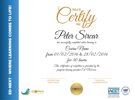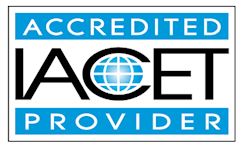Beginning Writer’s Workshop
Ed-Next
Summary
- Exam(s) / assessment(s) is included in price
Overview
If you have always wanted to write a novel but you have no idea how to begin the process, then Beginning Writer’s Workshop is created just for you. In this course, we cover all the basics you need to get started on producing your own book. You will be introduced to the fundamentals of creating the right plot, settings, scenes and developing characters. This course also helps to guide you through the tricky parts of writing: points of view and dialogue. So, if you are ready for the exciting challenge of writing your own novel, turn the page and let’s begin our journey!
Course media
Description
After completing this course, you should be able to:
- Identify the basic outlines of story structure and patterns
- Recall various ways to develop characters and how to set scenes
- Recognize different points of view, dialogue and voice
- List ways to vary sentence structure, use descriptive words and properly revise writing
Beginning Writer’s Workshop Module 1
Basic Story Structure
Every good book starts with an idea, observation, dream or experience. In this module, we discuss the importance of using accurate sources for material. We find out about story and plot, and we discuss ways to put together a story and plot to make a great novel. We also cover the differences between the two and how to create a logical pattern and outline for your story.
- Locating Sources for Material
- Keeping a Journal or Writer’s Notebook
- Story & Plot: What’s the Difference?
- Story Patterns
- Outlining Your Story
Beginning Writer’s Workshop Module 2
Developing Characters, Settings and Scenes
The way your characters look and act, and the name you give them, can help you tell your readers a great deal about the characters’ personalities. This week we will work on developing personalities, adding physical features and fleshing out specific details about your characters. We will also discuss setting and the way it interacts with plot, how to choose a setting that’s right for you, and how to research your chosen setting.
- Developing Personalities
- Adding Physical Features & Names
- Flesh Out Your Characters & Turn Them Loose
- Choosing the Right Setting for You
- Tips for Working with Scenes
Beginning Writer’s Workshop Module 3
Points of View, Dialogue and Voice
How you work with plot, scenes, and characters is determined by the point of view you choose for your novel. In this section, we look at the different points of view available, along with their positive and negative aspects. We also recognize what makes for good dialogue and tips for perfecting it.
- Different Points of View
- How to Work with Points of View
- The Importance of Good Dialogue
- Tips for Writing Dialogue
- Paying Attention to Voice
Beginning Writer’s Workshop Module 4
Language, Revision and Proofreading
This week, we talk about effective ways to work with active verbs and descriptions. Because wordiness can be a problem for every writer, we go over tips for discovering and eliminating verbiage in your novel writing. After a writer finishes every single piece of work, the time comes to start revising it. We will work through the stages of revision that are necessary to make your novel even better.
- Active & Descriptive Words
- Variations on Sentence Structure
- Tips for Revising Your Manuscript
- Focus on Beginnings & Endings
- Proofreading Tips
Ed4Online has been approved as an Accredited Provider by the International Association for Continuing Education and Training (IACET). In obtaining this accreditation, Ed4Online has demonstrated that it complies with the ANSI/IACET Standard which is recognized internationally as a standard of good practice. As a result of the Accredited Provider status, Ed4Online is authorized to offer IACET CEUs for courses and programs that qualify under the ANSI/IACET Standard.
You will earn 2.4 IACET continuing education credits by completing this Ed4Online course. This course is 24 contact hours which equals 2.4 CEUs based on the IACET standard. The International Association of Continuing Education and Training is the highest quality worldwide standard for Continuing Education Unit.
The Continuing Education Unit (CEU) was created by IACET as a measurement of continuing education. One (1) IACET CEU is equal to ten (10) contact hours of participation in an organized continuing education experience under responsible sponsorship, capable direction, and qualified instruction. Under IACET's care, the IACET CEU has evolved from a quantitative measure to a hallmark of quality training and instruction.
Who is this course for?
Anyone interested in writing and publishing
Requirements
No prior qualification required
Career path
Application of principles learnt in this course
Reviews
Currently there are no reviews for this course. Be the first to leave a review.
Legal information
This course is advertised on reed.co.uk by the Course Provider, whose terms and conditions apply. Purchases are made directly from the Course Provider, and as such, content and materials are supplied by the Course Provider directly. Reed is acting as agent and not reseller in relation to this course. Reed's only responsibility is to facilitate your payment for the course. It is your responsibility to review and agree to the Course Provider's terms and conditions and satisfy yourself as to the suitability of the course you intend to purchase. Reed will not have any responsibility for the content of the course and/or associated materials.




